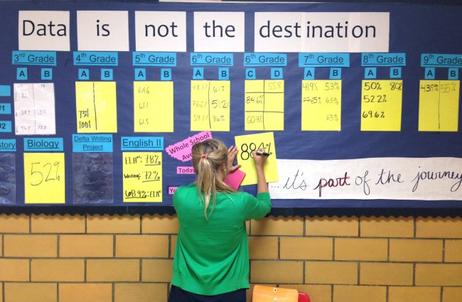Many schools around the country are failing to live up to academic expectations. Some are finding that the training of the teacher makes the difference in the quality of the education their students receive. Enter Teach for America – the education industry's equivalent of "boot camp" for aspiring teachers, providing the training and experience they need to succeed in even the most challenging academic environments. But is Teach for America really the knight on the white horse or a way to take the community out of the education process? This article will take a look at the pros and cons of this teacher training program.
This video explains the admissions process for Teach America.
What is Teach for America?
Teach for America started as an undergraduate thesis for Wendy Kopp during her studies at Princeton University. According to the organization's website, Kopp believed numerous college students would be willing to assume teaching positions over more lucrative careers if the proper training corps was in place to prepare them. During its inception year in 1990, Teach for America trained 500 men and women to teach in six low-income communities around the United States. Today, that number has grown to 28,000, making Teach for America the largest provider of teachers to low-income areas.
The approach taken by Teach for America is to train up a corps of teachers from over-achieving college students, who make a two-year commitment to teach in one of the 39 lowest income level school districts throughout the country. These teachers are equipped with the necessary tools to help under-achieving students reach academic success and break the cycle of poverty that is common to these communities. Once the students have completed their training, they are sent out to some of the neediest schools in the country, filling positions that would otherwise be left empty.
Criticism of Teach for America
While the theories and practices of Teach for America seem beneficial on the surface, not everyone is in favor of this model for turning around struggling schools. Some believe that the lack of grounding in the community keeps these teachers from forming the necessary ties to offer a long-lasting impact in the schools. Others are concerned that in an era where many schools are forced to lay off experienced teachers, these young college graduates could take jobs away from educators who have already paid their dues in the school districts.
Ari Weinzweig, a food retailer in Ann Arbor, Michigan, describes the local angle to the Huffington Post in this way, "You're talking about something like what the French call terroir. It has to do with the way that the soil and climate in a given region contribute to the flavor of the food. That's because of the soil's mineral content, the amount of sun and rain it gets, the local vegetation, and so on – all that is different in each region. It's the same with some businesses. Every community has its own character, which is sort of a spiritual terroir. If you're really rooted in that community, it's going to have a big impact on the way you are."
Despite the concerns, Teach for America is growing at an exponential rate. Currently, the organization is placing new teachers in a variety of communities, with plans to add even more in upcoming years. We will take a look at some of the schools that may look forward to teachers from this corps in the near future.
In this video some teachers discuss their experiences with Teach America/
Teach for America Teachers Coming to Alabama This Year
An article in The Republic reports that Teach for America is planning to send 55 new teachers to schools in Alabama this fall. The teachers will come directly from the corps to schools in Birmingham, Tuscaloosa, and Selma, as well as Butler, Hale, Greene, Marengo, and Lowndes counties. The team will add to the 30 teachers planning to return to these schools to teach in the fall.
New Teachers Coming to Tulsa
The first Teach for America teachers to come to Tulsa schools have already fulfilled their two-year commitment to their communities. While many will continue to work in the schools where they were first hired, others will be moving on to other teaching jobs or new career options. The teachers that are leaving Tulsa schools will be replaced by a new team of Teach for America teachers, which consists of 70 professionals heading to the city for the first time.
Roberta Ellis, executive director of human capital at TPS, told Tulsa World, "It's a great pipeline for us because they come into our most difficult situations and bring young, new, innovative ideas in." Ellis added, "Our selection process is new and different. We are only looking at people who say, 'I really want a job in an urban setting,' as opposed to people who just want a job for a couple of years before they go to a suburb." The careful selection process could be why so many Teach for America teachers remain in Tulsa after their two-year commitment is complete.
This video offers some criticisms of Teach America.
Ohio Ripe for Teach for America
Another state that may see teachers from this corps for the first time is Ohio. Until this year, state law has blocked Teach for America teachers from coming to Ohio schools, but the requirements that kept this corps out have now been waived. Kopp was reported saying in Cleveland.com, "We've begun exploration of whether we might bring some of them [teachers] to Cleveland."
Despite some controversy, Teach for America is still going strong, and some schools believe this is the best approach to turning around low-performing schools. With thousands of teachers coming from the corps to low-income school districts each year, there is no doubt Teach for America is currently filling a need in our education system today.
Questions? Contact us on Facebook. @publicschoolreview












